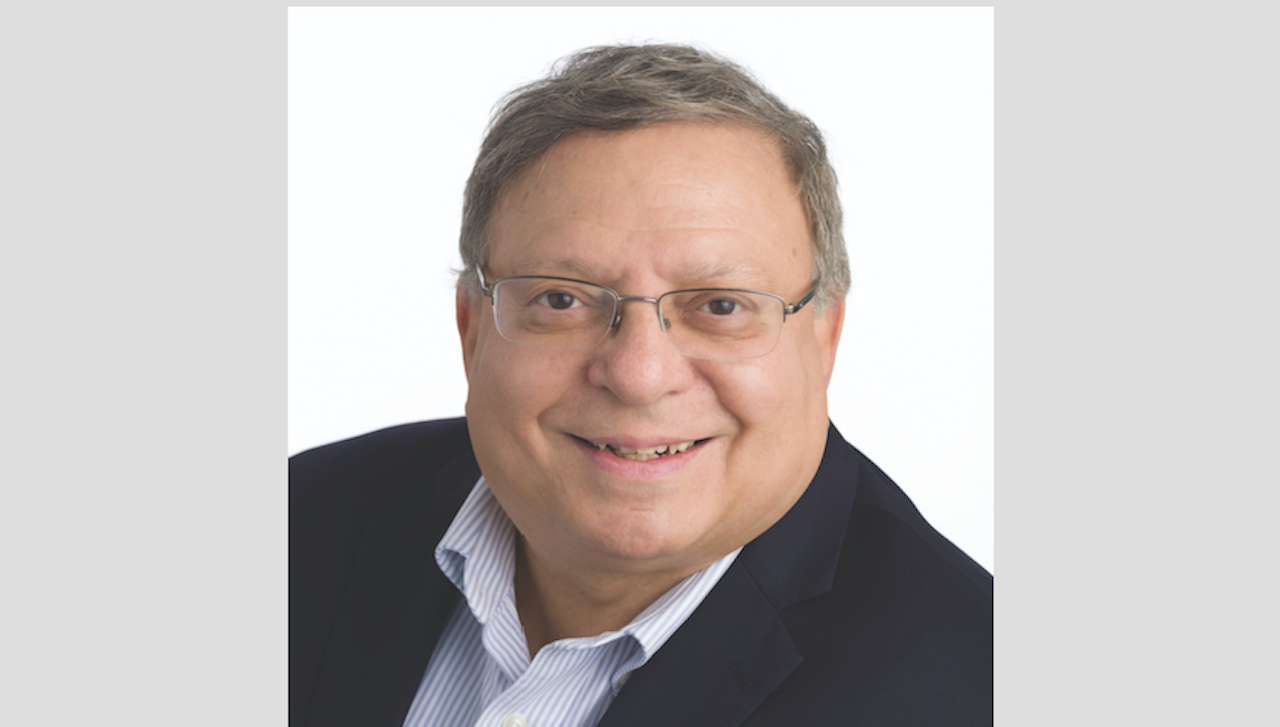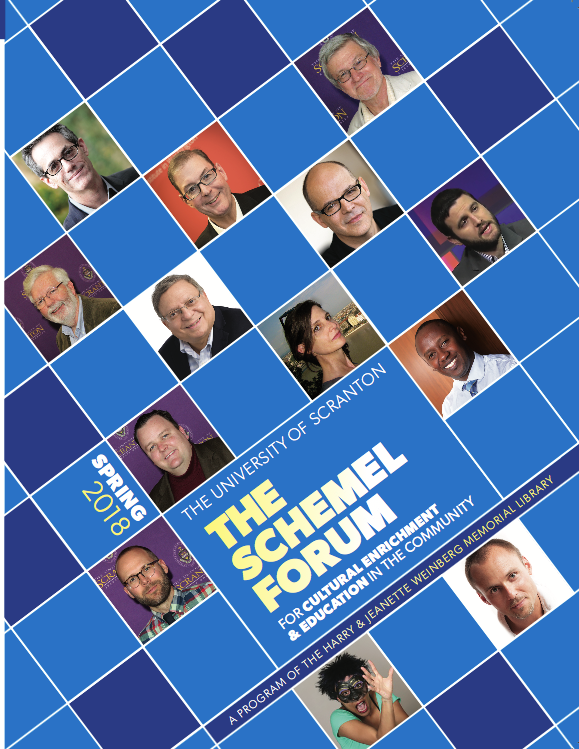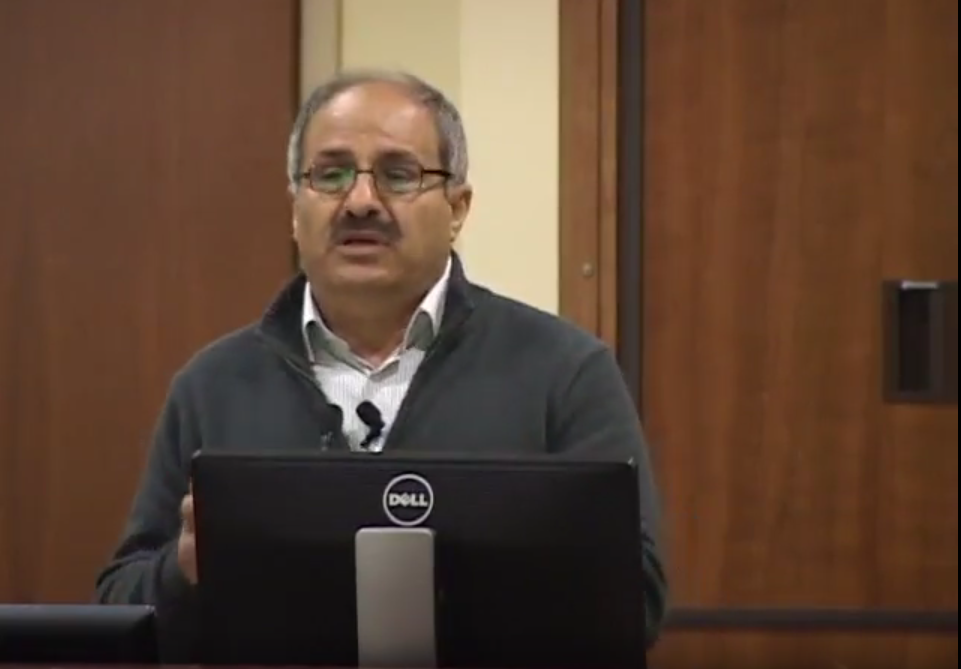Luncheon Seminars Analyze America’s Place in the World

During the spring semester, the Schemel Forum’s World Affairs Luncheon Seminars at The University of Scranton will enable area residents to gain a deeper understanding of American society and the interdependence of all nations.
On Friday, Feb. 9, Joseph Blasi, Ed.D., J. Robert Beyster Distinguished Professor at the Rutgers University School of Management and Labor Relations and Rutgers Business School, will present “The Citizen’s Share.” Highly recognized for his work in economic justice, Dr. Blasi will talk about economic inequality and the concentration of wealth in the U.S. that is destroying America’s middle class – including the impact of current tax reform. He will describe the role that broad-based employee share ownership and profit sharing in companies can play in addressing these problems.
A Scranton native and Scranton Prep graduate, Dr. Blasi will offer perspectives on how small businesses in Lackawanna County can remain viable and retain their employees. He has been a frequent advisor to presidents, state legislatures, think tanks and philanthropic foundations, most recently as profit-sharing policy advisor with Hillary Clinton’s presidential campaign. Following the lecture, he will sign his new book, The Citizen’s Share: Reducing Inequality in the 21st Century, which chronicles the social history of wealth distribution in the U.S., beginning with our nation’s founders. The seminar will take place in the Kane Forum of Leahy Hall.
Alexander Meleagrou-Hitchens, Ph.D., research director for the Program on Extremism at The George Washington University, will present “Understanding the Americans Who Joined Isis” on Monday, Mar. 5. Since the start of the Syrian conflict over 200 Americans have successfully traveled to ISIS-held territory in Syria and Iraq. In his talk, Dr. Meleagrou-Hitchens will discuss his latest research on these individuals, explaining their motivations for joining ISIS, their experiences and the terrorist threat that they may pose in the future. The seminar will take place in the Rose Room of Brennan Hall.
On Monday, March 19, “Shared Past, Divergent Courses: Zionism and Palestinian Nationalism, Part 3, The Israel-Palestinian Conflict, 1979-Present” will be presented by David N. Myers, Ph.D., president/CEO of the Center for Jewish History and Sady and Ludwig Kahn Professor of Jewish History at UCLA; and Hussein Ibish, Ph.D., senior resident scholar at the Arab Gulf States Institute in Washington, D.C.
The third of three presentations exploring the history of the conflict, this session will focus on the end of a long phase of conflict between Israel and its Arab neighbors and the growing tension between Israelis and Palestinians. In the face of new regional and global forces, as well as of the stalemate in negotiations, the speakers will consider whether the conflict has entered a new phase centered on religious rather than national differences, a potentially dangerous battle between Jews and Muslims over control of holy terrain. The seminar will take place in the Rose Room of Brennan Hall.
Fredrik Logevall, Ph.D., Laurence D. Belfer Professor of International Affairs at Harvard University, will present “JFK, LBJ and the Paradox of Vietnam” on Tuesday, Apr. 3. In the 1960s, U.S. presidents John F. Kennedy and Lyndon B. Johnson made Vietnam into an American war, despite both having deep misgivings about the struggle. Harvard historian and Pulitzer Prize-winning author of Embers of War, Dr. Logevall considers anew one of the most consequential and trying chapters in American history. The seminar will take place in the Rose Room of Brennan Hall.
On Wednesday, Apr. 11, “Resisting Threats to Democracy: Lessons from Machiavelli” will be presented by Erica Benner, Ph.D., fellow in political philosophy at Yale University and fellow at the Institute for Advanced Study at Central European University in Budapest, Hungary. “I’d like to teach them the way to hell so they can steer clear of it,” maverick Italian philosopher Niccolo Machiavelli wrote to a friend in 1526. “The hell he had in mind was a very earthly kind, one created by bad political choices and institutions that fail to check widespread corruption,” said Dr. Benner, who will offer her perspective on what advice Machiavelli might give to today’s citizens and leaders to help save their troubled democracies. The seminar will take place in the Rose Room of Brennan Hall.
The spring series will conclude on Thursday, Apr. 26, when Felix C. Rwabukwisi, M.D., assistant professor in the Department of Clinical Science at Geisinger Commonwealth School of Medicine, will present “Strengthening the Global Health System: Lessons Learned from Africa.” He will discuss his experience strengthening primary health care across five African countries and why public health is not only a local issue, but also a global issue.
Over the past eight years, Dr. Rwabukwisi has devoted his expertise to global health delivery leadership and social activism for healthcare equity. “Health crises result when public health initiatives are viewed from a cost-for-outcome standpoint, rather than a moral one,” he said. “The best way to strengthen and sustain health in Africa is twofold: engaging wealthy nations to share knowledge, implementation and funding on a long-term basis; and involving local communities for sustainable solutions.” The seminar will take place in the Rose Room of Brennan Hall.
The World Affairs Luncheon Seminar series is sponsored by Munley Law.
All seminars include a buffet lunch and run from noon to 1:30 p.m. Participants can register to attend one luncheon for $20 per person or $30 per couple, or for the entire series of six luncheons for $110 per person or $160 per couple. Schemel Forum members may attend any or all seminars free.
To register, contact Alicen Morrison, Schemel Forum assistant, at 570-941-6206 or alicen.morrison@scranton.edu. For more information on Schemel Forum programs and memberships, contact Sondra Myers, Schemel Forum director, at 570-941-4089 or sondra.myers@scranton.edu.
“History Matters: The Road to Cross-Cultural Understanding & Reconciliation” by Sami Adwan, Ph.D.
The Schemel Forum’s World Affairs Luncheon Seminars presentation “History Matters: The Road to Cross-Cultural Understanding & Reconciliation” by Sami Adwan, Ph.D., professor of education, Hebron University, West Bank, focuses on the dual historical narrative approach to teaching history in times of conflict. The World Affairs Luncheon Seminar series is sponsored by Munley Law.

“History Matters: The Road to Cross-Cultural Understanding & Reconciliation” by Sami Adwan, Ph.D.
The Schemel Forum is a program of participatory learning experiences aimed at cultivating the intellect and the imagination through study and discussion of classical texts and current policies, from the arts, history and philosophy to technology and theology. Founded in 2006 through generous gifts to the Rev. George Schemel, S.J., Fund, created by friends of the late Father Schemel in his loving memory, and spearheaded by Harmar Brereton, M.D, the forum has grown from a handful of informal lectures to a comprehensive enrichment program of study, dialogue, performances and special events. Through the forum the University offers to the community its most valuable assets – its faculty members and the wealth of knowledge that they possess.







